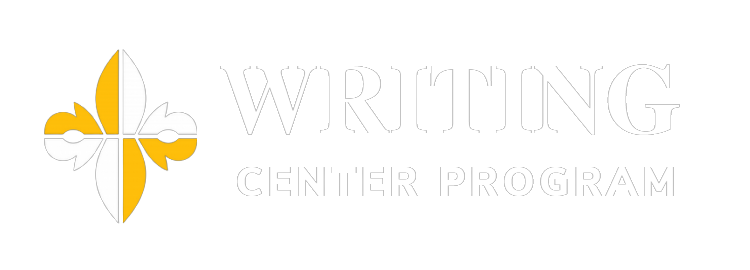From the Web
In this New York Times opinion piece, John McWhorter, associate professor of linguistics at Columbia University, argues that in light of the myriad ways authors may intentionally and/or inadvertently use the words of other writers, a catch-all, derogatory term like 'plagiarism' might not always be warranted or even fair.
In this blog post, Bryan Alexander offers an extensive list of AI-related readings across numerous media and genres including articles, blog posts, short stories, Substack posts, a comic strip, and several books, to mention a few.
In this article, published in Medium, professional writer Shreya Badonia explains how she got back into writing and increased her productivity after a brief hiatus. (Note: this site may require sign-up to read the full article)
In this article published in The Guardian, Sean Clark, Dan Milmo, and Garry Blight, offer a visual walk through of how AI Chatbots actually work.
Sierra President, an intern at UNC's Office of Ethics and Policy, offers a student's perspective on the ethical dilemmas of using new AI platforms that assist in gaining and distributing information.
A new study by Researchers at the University of Oxford, in collaboration with international experts, addresses the ethical issues surrounding responsibility for outputs generated by large language models.
Ryan Watkins, Professor of Educational Technology Leadership, and Human-Technology Collaboration at George Washington University offers advice to instructors on how to adjust to the new reality posed by ChatGPT, the new language model chatbot developed by OpenAI.
"Ever since the chat bot ChatGPT burst into public view in late 2022, students, professors and administrators have been woozy from a chaotic cocktail of excitement..."
Amid the excitement, uncertainty and fear caused by ChatGPT, tech and innovation reporter Susan D'Agustino offers advice to academics on how to adapt to this new technology.
Amid the excitement, uncertainty and fear caused by ChatGPT, tech and innovation reporter Susan D'Agustino offers advice to academics on how to adapt to this new technology.
"The pandemic made it clear that science touches everything, and everything touches science."
Ed Yong, a staff writer at The Atlantic, explains how the COVID pandemic has taken its toll on scientific literature.
Ed Yong, a staff writer at The Atlantic, explains how the COVID pandemic has taken its toll on scientific literature.
"Scientific papers containing lots of specialized terminology are less likely to be cited by other researchers."
Katherine Kornei, award-winning science journalist, argues that excessive amounts of specialized terminology in scientific papers can decrease the likelihood of being cited by other researchers.
Katherine Kornei, award-winning science journalist, argues that excessive amounts of specialized terminology in scientific papers can decrease the likelihood of being cited by other researchers.
Roey Elnathan, senior research fellow at Monash University, Australia, argues that Scientists with a different first language could benefit from mentoring and support to help them communicate their research clearly for global audiences.
Sylmarie Dávila-Montero, Ph.D. candidate in the Electrical and Computer Engineering doctoral program at Michigan State University, discusses the challenges faced by women working in STEM fields and offers suggestions on what can be done to help keep them there.
"Writing a persuasive essay is at once the easiest and most difficult writing task of all. The persuasive essay is easy to write because you are surrounded by so many examples. The difficult part, however, of writing a persuasive essay has to do with the approach. When you write a persuasive essay, you can’t rely on persuasion alone."
"Probably the biggest challenge of text recycling is the lack of visible and consistent norms."
The Duke University professor’s Text Recycling Research Project aims to help scientists and editors deal with the ambiguity.
The Duke University professor’s Text Recycling Research Project aims to help scientists and editors deal with the ambiguity.
"Big changes are afoot! APA endorses the use of “they” as a singular third-person pronoun. This means it is officially good practice in scholarly writing to use the singular “they.”
This blog post provides insight into how this change came about and provides a forum for questions and feedback.
This blog post provides insight into how this change came about and provides a forum for questions and feedback.
"Not all universities will survive the COVID-19 crisis. Many niche institutions will alter their models to stay afloat. Other vulnerable higher education institutions without effective safety nets may downsize, consider mergers or declare bankruptcy. New institutions with new solutions will come to replace them."
"Universities have long stood as privileged and well-protected sites serving the creation, structuring and dissemination of knowledge, both theoretical and practical. The complex but relatively short history of the modern university allows us, however, to track a course of intellectual endeavour characterised by recurrent resilience, ingenuity and innovation."
"Inboxing is monotonous work. We need to remember that we are human beings–not human doings. I often feel like email inboxing is more human doing–doing every email in my inbox until I’ve achieved inbox zero! (Relief!)."
Jennie M. Carr, PhD offers her approach to dealing with the endless onslaught of work-related correspondence.
Jennie M. Carr, PhD offers her approach to dealing with the endless onslaught of work-related correspondence.
© 2023 Writing Center Program
Contact Info
+7 (7172) 69 48 12 -------- +7 (7172) 70 47 33
Kabanbay Batyr Avenue 53, Astana, Kazakhstan
